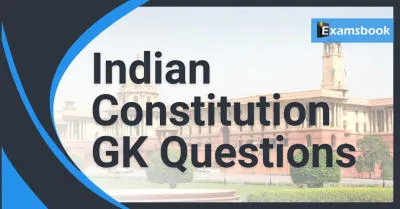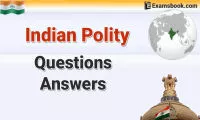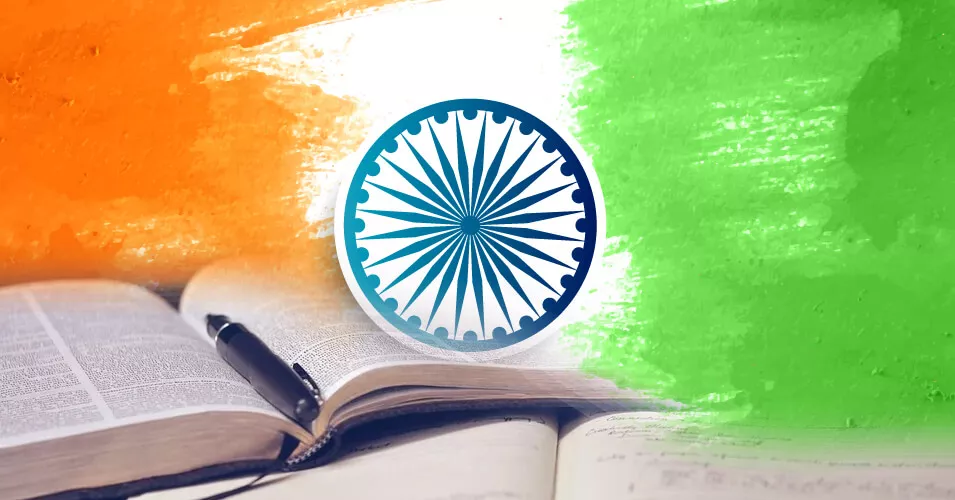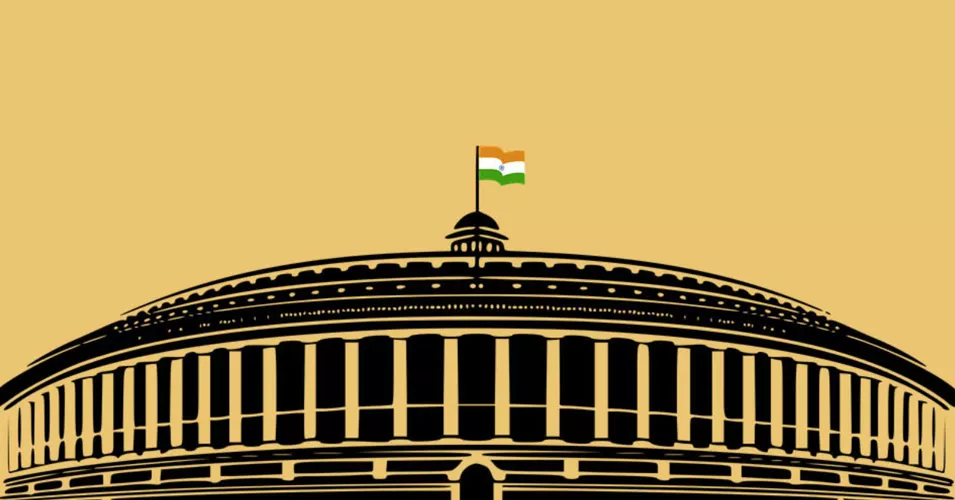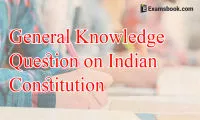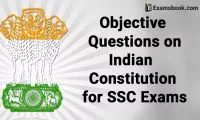- Free Test Series, Mock tests and Practice Tests
- Time proven exam strategies
- Exam analysis and simulated tests
- Hand-on real time test experience

Recently Added Articles View More >>
Welcome to our Constitution GK Quiz for Competitive Exams blog! This dedicated space is your go-to resource for mastering the intricate details of the Constitution of India whether you're preparing for UPSC, SSC, banking exams, or other competitive tests.
Welcome to our comprehensive guide to mastering Common General Knowledge (GK) quiz questions for SSC Exams. General Knowledge forms an integral part of various competitive exams conducted by the Staff Selection Commission (SSC).
Welcome to our Constitution General Knowledge Quiz and Answers blog! Dive into the depths of legal history and governmental principles as we explore the foundation of our society through this engaging quiz.
Welcome to our comprehensive guide on tackling Indian Constitution questions for SSC exams. The Indian Constitution serves as the foundational document that governs the world's largest democracy, providing a framework for governance, rights, and duties of citizens.
Delve into the intricate fabric of India's governance system with our Indian Polity Questions for SSC Exams blog. Explore a comprehensive array of curated questions that unravel the layers of the country's constitutional framework, governance, and political processes.
Welcome to the Indian Constitution GK Quiz with Answers blog! Delve into the depths of India's foundational document with our engaging quizzes. Test your knowledge of the intricate details, historical significance, and key provisions of the world's lengthiest written constitution.
Welcome to our Indian Constitution GK Quiz blog! This Indian Constitution GK Quiz is designed to test your knowledge of the Indian Constitution, one of the world's most comprehensive and vital legal documents.
GK (General Knowledge) Quiz Questions with Answers is a fun and engaging way to test your knowledge about various topics such as history, geography, science, literature, current events, etc.
Most Popular Articles
Most Popular Articles
Recently Added Questions
Which of the following amendments to the Constitution of India put a cap on the number of ministers in the Union Cabinet?
1.4K 0 6576f33ed994497b27ace771- 174thfalse
- 269thfalse
- 383rdfalse
- 491sttrue
- Show AnswerHide Answer
- Workspace
- SingleChoice
Answer : 4 91st
Explanation :
Clause 1A was inserted in Article 164 of the Constitution (91st Amendment) Act, 2003, according to which, "The total number of Ministers, including the Chief Minister, in the Council of Ministers of a State should not exceed 15% of the total number of members of the State Assembly.
- 11923false
- 21919false
- 31928true
- 41925false
- Show AnswerHide Answer
- Workspace
- SingleChoice
Answer : 3 1928
Explanation :
1. Simon Commission visited India a total of 2 times. For the first time, he came to India in February-March 1928, while for the second time, he came to India in October 1928. The Simon Commission submitted its report in May 1930 and the British Government published it on May 27, 1930.
2. Simon Commission had said in its report that the High Court in India should be kept under the Government of India. Furthermore, implementing accountable governance in the provinces should be initiated.
Which of the following Articles of the Constitution of India states that the State shall take steps to organise village panchayats?
1.3K 0 6572f06d612650bf535585b5- 1Article 48false
- 2Article 40true
- 3Article 36false
- 4Article 34false
- Show AnswerHide Answer
- Workspace
- SingleChoice
Answer : 2 Article 40
Explanation :
Article 40 was made and it became part of the Directive Principles of State Policy of the Constitution. However, the necessary legislation to bring the Panchayats into effect was not made immediately. Recommended the establishment of a three-tier Panchayati Raj system in the nation.
Which of the following Articles of the Constitution of India declares that the Supreme Court shall be a court of record?
1.2K 0 6572e9c1b56eebbf4791b4e8- 1Article 111false
- 2Article 135false
- 3Article 129true
- 4Article 119false
- Show AnswerHide Answer
- Workspace
- SingleChoice
Answer : 3 Article 129
Explanation :
According to Article 129, the Supreme Court acts as a court of record, that is, records are officially published and decisions are given on their basis, considering them as precedents. The decision given by him cannot be challenged in any court. The Supreme Court also has the power to punish for defamation.
Which of the following is not a fundamental rights in Indian constitution-
826 0 653279719c44d229e7239af9- 1Right to equalityfalse
- 2Right to freedomfalse
- 3Right to propertytrue
- 4Right against exploitationfalse
- Show AnswerHide Answer
- Workspace
- SingleChoice
Answer : 3 Right to property
Explanation :
Right to property is a legal right under Article 300A. It was made a legal right by 44th Constitutional Amendment act 1978.



